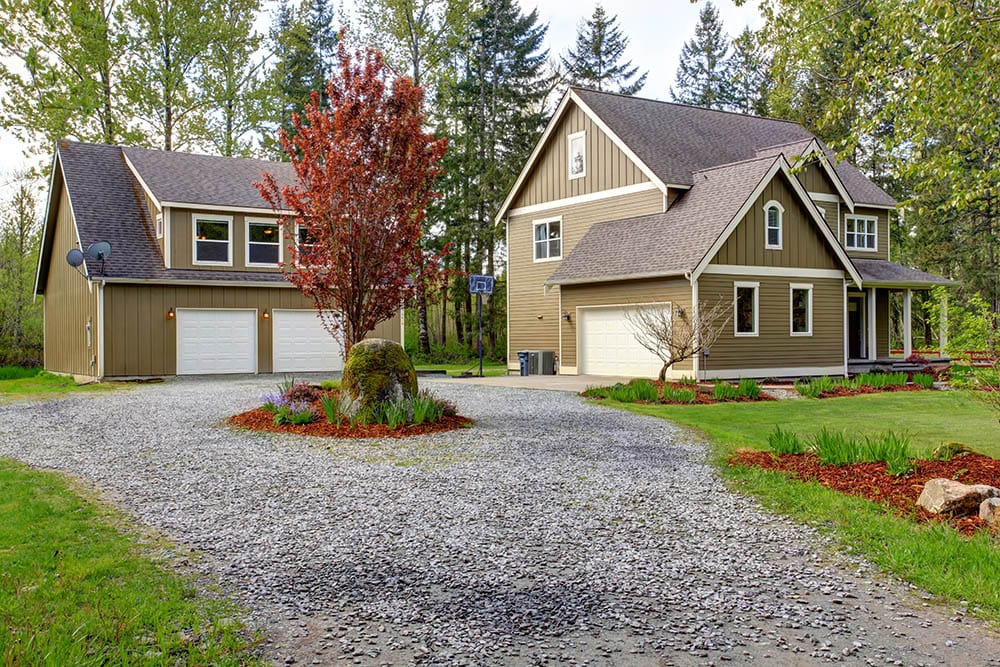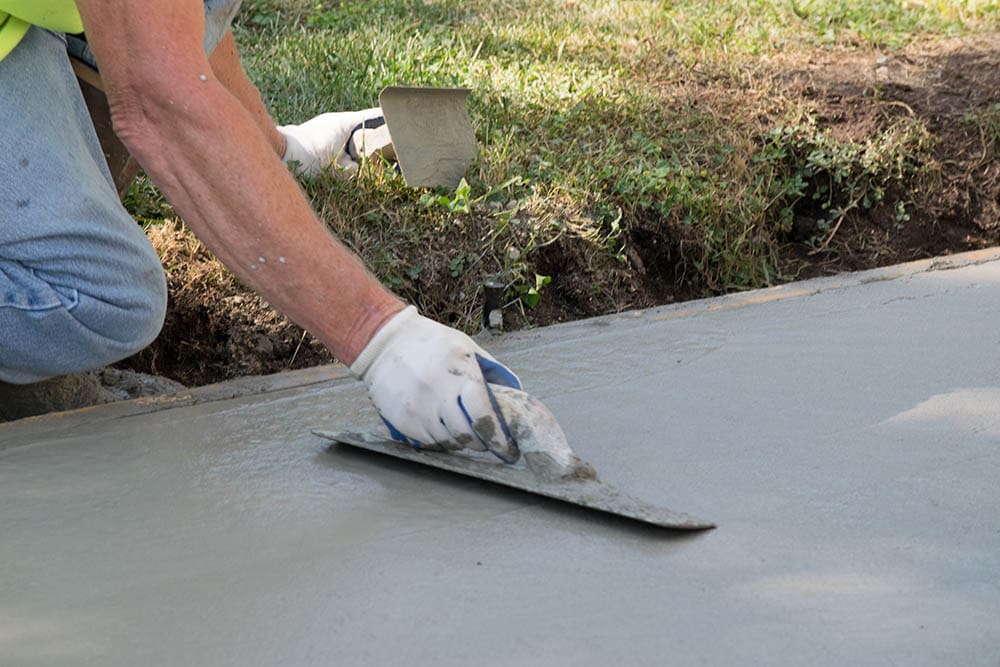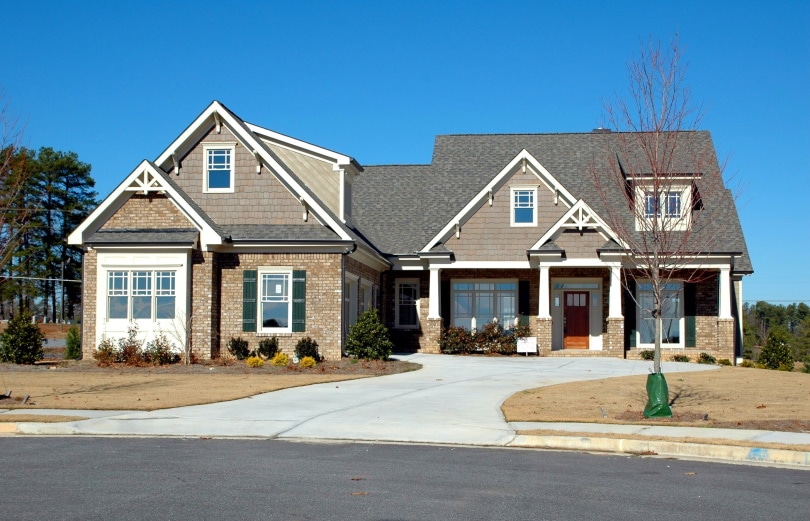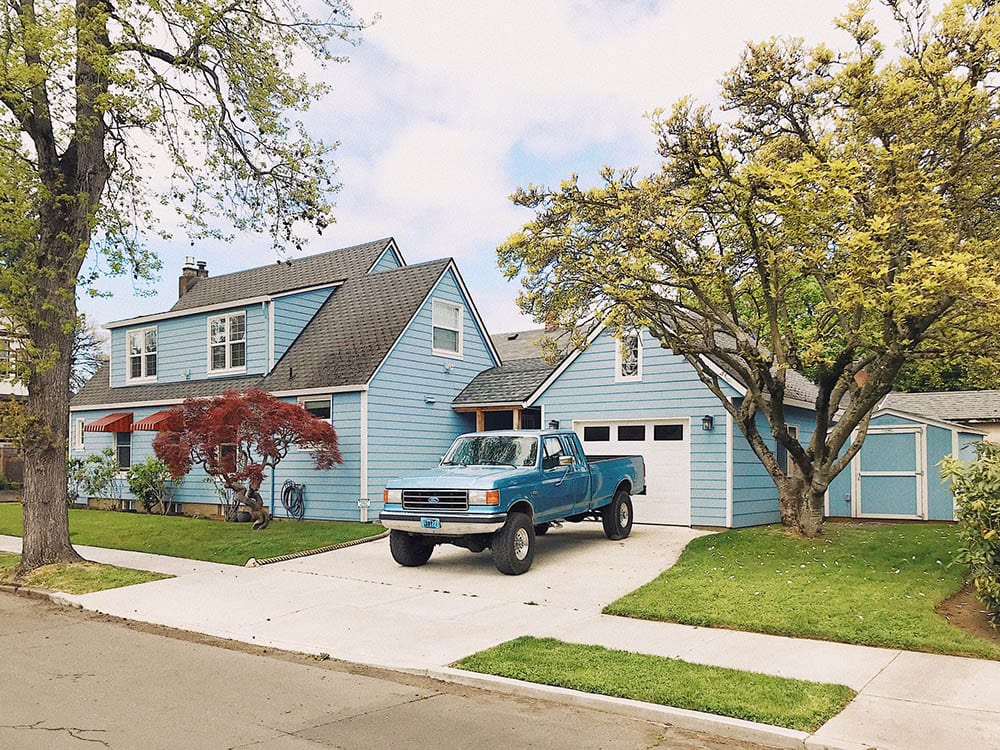Concrete vs Gravel Driveway: Which Is Best for Me?
-
Pete Ortiz
- Last updated:

Realtors believe that having a driveway is a make-or-break factor when it comes to selling a home. We don’t know how true that is, but we agree that driveways do add value to most properties.
Security is the other reason why we feel like installing driveways should be a priority for every homeowner. Different experts speculate that a car is more likely to be broken into while it’s parked on the side of the road than when it’s in the driveway.
We’re here to help you decide which type of driveway—gravel or concrete—will best cater to your personal needs.
 Gravel Driveway Overview
Gravel Driveway Overview
Gravel is a term typically used to describe any loose stone or rock that’s comparatively larger than sand. If we had to work with a spectrum, we’d say the size of gravel falls between sand and cobblestone. That is to say, its average size ranges from 0.1 to 2.5 inches.
When building driveways, we usually use a special type of gravel. Of course, any type of gravel can be used for such a project, but for the sake of longevity, we often apply a processed product that constitutes clay, sand, and rocks. These construction ingredients, combined in the right ratio, condense so well that they end up creating a sturdier surface.

Are Gravel Driveways Suitable for All Homeowners?
While gravel can be used anywhere, those who really benefit from this home feature are people who have homes built in rural areas.
Unlike concrete, gravel is very accommodating and flexible when it comes to dealing with trees that like to spread their roots far and wide. How gravel responds to such an issue is much better than the response that you’d get from concrete—cracks will show up almost immediately.
Gravel driveways are also ideal for property owners who live in colder states. It’s known to outperform its concrete peer in these regions because it’s less susceptible to damage caused by the seasonal freeze-thaw cycles.
The installation cost is also not a dismissible factor since gravel is way cheaper than asphalt or concrete. The price per square foot will obviously vary—since there are other economic aspects at play—but even if we decide to work with a high-end installation, gravel driveways are still very affordable.
What are some of the main factors influencing the overall costs of an installation?
- The length of the driveway
- Thickness
- Labor costs
- Availability of materials
- Location
What’s the Lifespan of a Gravel Driveway?
A gravel driveway can last you a lifetime (they say it can easily clock 100 years) but only if you take good care of it. And the good thing about this material is that it can be replenished or repaired anytime it starts showing signs of wear and tear. Repairing any sort of damage to concrete is difficult and costly and more often than not, property owners feel it best to replace the whole thing.

Gravel Driveway Maintenance
Gravel will certainly give you a driveway that’s high maintenance. You’ll likely need to regrade its surface at least once a year, depending on the daily amount of traffic and the local climate.
Grooves, dips, and potholes are all common occurrences when you have this type of driveway. Even if you’ve just installed it, any activity deemed “vigorous” can easily gouge out a section of the driveway.
The friction force generated between the wheels and the surface is enough to create a noticeable dip. So, try to avoid turning the vehicle once you get on your driveway. Slowly back it up until you get on the road, and then make your turn.
Because gravel is well-drained and loose, different weed species (and several other plants) are often drawn to it. They’ll quickly claim that whole territory and transform the space into something that resembles a garden if you don’t pluck them out as soon as they pop up.
The other major drawback that can’t be ignored, is how exhausting and frustrating it is to clear snow off of a gravel driveway using a snowblower. The minute you start scraping the surface, the gravel in that section gets displaced. Use a plastic shovel (not one made of metal) and be gentle while shoveling.
- Cost-effective
- Installation doesn’t require lots of infrastructure
- Well-draining
- Easy to repair
- Doesn’t need curing
- Susceptible to damage
- Gravel washes away at times
- Not considered a premium material
- Not easy to clean
- Affected by weeds
Concrete Driveway Overview
There’s this common misconception that concrete is the same material as cement. In reality, these are two very different materials. Cement—a pulverized powder conventionally manufactured using clay and limestone—is just a single component in the short list of items that are meant to be mixed in a specific ratio to make concrete.
If we had to define concrete, we’d say it’s essentially a composite material that constitutes different types of stone aggregate, including sand, gravel, and crushed rocks. The glue that holds all of them together is actually the cement, already mixed with water.
The stone aggregates usually vary in size and that’s what gives concrete its flexible application. For instance, if you’re looking to apply concrete in structural construction, the aggregates will have to be gravel-sized.
But if you’re hoping to create a smoother surface finish, you’ll have to go for the one that’s made up of finer sand. In the case of the driveway, you’ll need to go for both because we need the finer particles for the surface and the mid-sized aggregates to build a studier foundation.
As a raw, unused construction material, concrete is nothing more than a pourable slurry—something that can be shaped into anything, depending on the needs of the user. But once it’s been applied, and it’s in the middle of curing, it’s rock-solid.
Curing is a process that can go on for years, though the end product can be ready for use after a couple of days.

Are Concrete Driveways DIY-Friendly?
This depends on your view of what constitutes a DIY project. If you’re the kind of person who doesn’t mind taking on labor-intensive projects, you’ll undoubtedly have a blast working with it. Mixing and pouring concrete has never been a breeze to anyone, including professionals.
Time is a vital element in the installation process. It only takes a few minutes for concrete to start showing signs of hardening, and that small window is the reason why inexperienced homeowners prefer leaving all the work to the pros. They know when to excavate, prepare the mixture, start pouring, and finish the surface.
Some experts believe that the most important part of the installation process is not even the mixing or pouring. It’s curing, which is a chemical process that allows the ingredients to slowly harden, thus becoming stronger. Optimal curing requires optimal conditions, preferably one that’s damp but not wet—with temperatures that are between 50ºF to 90ºF.
The nature of concrete guarantees that you’ll be getting a durable driveway. But the installation costs are a turn-off if the goal was to go for something affordable. The price per square foot is much higher than that of gravel, and the reason why some of us steer clear of it.

Are Concrete Driveways High Maintenance?
Fortunately, no. In fact, we’ll even go out on a limb here and say they’re practically maintenance-free. That being said, if you’d like to ensure that they don’t end up disappointing you at any point, it’s good to take precautions. And taking precautions means maintaining it right from the jump.
- Minimize its contact with water. Start by creating a 3-inch strip around the edges, to act as a runoff area for rainwater or snow.
- Carefully plow off the snow instead of being aggressive. That surface might be harder than a rock, but it’s still capable of being damaged.
- Occasionally clean your driveway and minimize radiator fluid or motor oil spillage. Those spillages eventually penetrate the surface, leaving the foundation soft and brittle.
- Don’t apply chemical deicers or salt to your driveway. That’s one of the reasons why concrete driveways start forming cracks.

Why Are Concrete Driveway’s Surfaces So Smooth?
That credit goes to the floating process. Once the crew’s done pouring and smoothing the surface to the best of their ability, they’ll call in the finishing crew. This second crew will come in with tools that have been designed for what they call the “capillary action.” That is pulling cement, and nearly all the finer particles underneath the concrete, to the top surface.
The process is intricate and requires a lot of patience because if they over-float the concrete, the surface will be weakened. And if they under-float it the slab will remain rough.

- Remarkably durable
- Can hold heavier vehicles
- Doesn’t support the growth of weeds
- Low maintenance
- Installation is labor-intensive
- Pricier than gravel driveways
- Installation is time-consuming
Conclusion
Both gravel and concrete driveways have their pros and cons, although either one is a great choice for your home. Both of these driveways are incredible home features with different offerings. If you’re hoping to install a driveway that requires less maintenance, we say take the concrete route. But if you’re working with a budget, you’ll have to settle for gravel. Either way, you’ll have a driveway that provides safety for your car.
Featured Image Credit: Left – Concrete Driveway (romakoma, Shutterstock); Right – Gravel Driveway (Artazum, Shutterstock)
Contents

 Gravel Driveway Overview
Gravel Driveway Overview